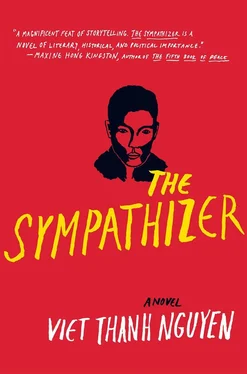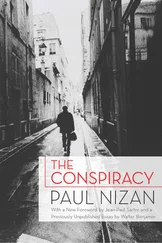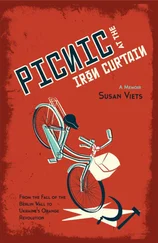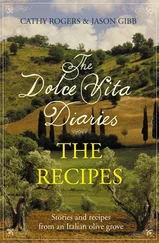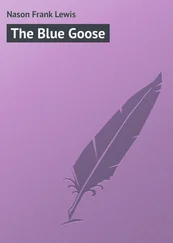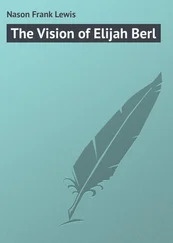The only advantage I had over these twins was that I had had a father in my childhood to teach me about guilt, and they would not. My father taught classes for the children of the diocese, which my mother forced me to attend. In his schoolroom I learned my Bible and the history of my divine Father, the story of my Gallic forefathers, and the catechism of the Catholic Church. At that time, when my years could be counted on the fingers of two hands, I was naive and ignorant of the fact that this father in his black cassock, this holy man who sweated in his unnatural garb to save us from our tropical sins, was also my father. When I did know, it recast everything I learned from him, beginning with this most basic tenet of our faith, drilled into our young platoon of Catholics by the father as he walked before our class, reading our lips as we collectively droned the answer:
Q. What is the sin called that we inherit from our first parents?
A. The sin that we inherit from our first parents is called Original Sin.
For me, the truly important Question that had always preoccupied me was related to this Original Sin, for it concerned my father’s identity. I was eleven when I learned the Answer, my knowledge triggered by an incident on the dusty grounds of the church after Sunday school, a territory where we children reenacted on one another many a biblical atrocity. As we watched the father’s imported bulldog thrust away at a whining female companion in the shade of a eucalyptus tree, his tongue hanging, the pink balloon of his enormous scrotum swinging back and forth with hypnotic rhythm, one of my more knowledgeable classmates offered a supplement to this lesson in sex education. A dog and a bitch, that’s natural, he said. But him — and here he turned scornful eyes and finger on me — he’s like what happens when a cat and a dog do that. Everyone’s attention turned to me. I stood there as if on a boat drifting away from the shore where they all waited, seeing myself through the eyes of others as a creature neither dog nor cat, neither human nor animal.
A dog and a cat, this little comedian said to me. A dog and a cat—
When I punched him in the nose, the comedian bled but was silent, shocked, his eyes momentarily crossed as he tried to see the damage. When I punched him again in the nose, the blood gushed, and this time the comedian cried out loudly. I punched him again, working my way from ears to cheeks to solar plexus and then to the hunched shoulders that he drew up around his head to protect himself when he fell to the ground and I fell on top of him. Our peers gathered around us, yelling, screaming, and laughing as I continued to pummel him until my knuckles stung. Not a single one of these witnesses offered to intervene on behalf of the comedian, who finally stopped me when his sobs began sounding like the strangled laughter of someone hearing the best joke ever told. When I stood up, the yelling, screaming, and laughing subsided, and in the adorable faces of those little monsters I could see fear, if not respect. I walked home in confusion, wondering what, exactly, I had learned, unable to put it into words. My mind had no room for anything but the obscene picture of a dog mounting a cat, her animal face replaced by that of no one else but my mother, an image so upsetting that when I arrived home and saw her I burst into tears and confessed everything that had transpired that afternoon.
My child, my child, you are not unnatural, my mother said, clutching me to her as I sobbed against the cushion of her bosom, musky with her distinct fragrance. You are God’s gift to me. Nothing or no one could be more natural. Now listen to me, child. When I looked up into her eyes through the mist of my tears, I saw that she, too, was weeping. You have always wanted to know who your father is, and I told you that when you knew, you would be a man. You would have to say good-bye to your childhood. Are you sure you want to know?
When a mother asks her boy if he is ready to be a man, can he say anything else but yes? So I nodded and held her tight, my chin on her breast and my cheek on her collarbone.
You must not tell anyone what I am about to tell you. Your father is. .
She said his name. Seeing the confusion in my eyes, she said, I was very young when I was his maid. He was always very kind to me, and I was grateful. He taught me how to read and how to count in his language, when my parents couldn’t afford to send me to school. We spent a great deal of time together in the evenings, and he would tell me stories of France and his childhood. I could see he was very lonely. He was the only one of his kind in our village, and it seemed to me that I was the only one of my kind, too.
I broke away from my mother’s bosom, covering my ears. I no longer wanted to hear, but I was mute, and my mother continued talking. I no longer wanted to see, but images floated before me even though I closed my eyes. He taught me the Word of God, she said, and I learned to read and to count by studying the Bible and memorizing the Ten Commandments. We read sitting at each other’s side at his table, by lamplight. And one night. . but you see, that is why you are not unnatural, child. God Himself sent you, because God would never have permitted what happened between your father and me unless He had some role for you in His Great Plan. That is what I believe and what you must, too. You have a Destiny. Remember that Jesus washed the feet of Mary Magdalene, and welcomed the lepers to his side, and stood against the Pharisees and the powerful. The meek shall inherit the earth, child, and you are one of the meek.
If my mother saw me now, standing over the crapulent major’s children, would she still think me one of the meek? And as for these sleeping children, how long would they stay unawake to the guilt they already bore, to the sins and crimes they were doomed to commit? Was it not possible that each of them in his little heart, as they tussled next to each other for their mother’s breasts, had already yearned, however briefly, for the disappearance of the other? But the widow was not waiting for an answer to these questions as she stood next to me, peering down at her womb’s wonders. She was waiting for me to sprinkle on them the holy water of meaningless compliments, a necessary baptism that I reluctantly gave and that so delighted the widow she insisted on cooking me dinner. I needed little encouragement, given my steady diet of frozen foods, and it soon became clear why the crapulent major had grown ever fatter under her love. Her shaking beef was beyond compare, her stir-fried morning glory evoked my mother’s, her winter melon soup soothed my guilty agitation. Even her white rice was fluffier than what I usually ate, the equivalent of goose down when I had slept for years on synthetic fiber. Eat! Eat! Eat! she cried, and in that command it was impossible not to hear my mother’s voice urging the same no matter how meager our spread. So I ate until I could eat no more, and when I was done, she insisted there was still the unfinished plate of ladyfingers.
Afterward I drove to a nearby liquor store, an immigrant outpost operated by an impassive Sikh with an impressive handlebar mustache I could never hope to replicate. I bought a copy of Playboy , a carton of Marlboro cigarettes, and an achingly lovely see-through bottle of Stolichnaya vodka. That name, with its echoes of Lenin, Stalin, and Kalashnikov, made me feel better about my capitalist indulgences. Vodka was one of the three things the Soviet Union made that were suitable for export, not counting political exiles; the other two were weapons and novels. Weapons I professionally admired, but vodka and novels I loved. A nineteenth-century Russian novel and vodka accompanied each other perfectly. Reading a novel while one sipped vodka legitimized the drink, while the drink made the novel seem much shorter than it truly was. I would have returned to the store to buy such a novel, but instead of The Brothers Karamazov it stocked Sgt. Rock comics.
Читать дальше
